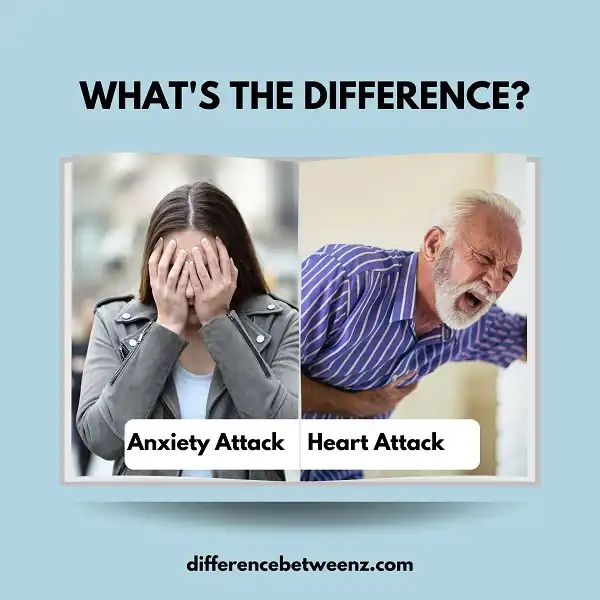Anxiety and heart attacks are two very different things, but they are often confused with one another. In this blog post, we will explore the differences between anxiety and heart attacks, as well as how to tell the difference between the two. If you are experiencing any of the symptoms of a heart attack, it is important to seek medical help immediately. However, if you are experiencing symptoms of anxiety, there are ways to deal with those symptoms that do not involve medication or surgery.
What is an Anxiety Attack?
Anxiety attacks, also called panic attacks, are episodes of intense fear or discomfort that generally last no more than a few minutes. Anxiety attacks usually peak within 10 minutes, and they rarely last longer than 30 minutes. However, some people experience anxiety that lasts for several hours or even days. Anxiety attacks typically begin suddenly and without warning. They may also occur in response to a specific trigger, such as a feared object or situation. People who have anxiety attacks often feel like they are losing control or that they are about to die.
Physical symptoms of anxiety attacks include racing heart, shortness of breath, chest pain, dizziness, and gastrointestinal distress. Anxiety attacks can be very frightening, but they are not dangerous. treatment for anxiety attacks usually includes lifestyle changes, such as reducing stress, and counseling or medication.
What is a Heart Attack?
- Heart attacks are a leading cause of death in the United States, accounting for over 600,000 fatalities each year. But what exactly is a heart attack? When most people think of a heart attack, they imagine someone clutching their chest in pain, collapsing to the ground, and being rushed to the hospital.
- While this can certainly be one manifestation of a heart attack, it is not the only one. Heart attacks can also be much more subtle, presenting as fatigue, nausea, or shortness of breath. And in some cases, heart attacks may not cause any symptoms at all.
- Heart attacks occur when the flow of oxygen-rich blood to the heart muscle is blocked. This can happen due to a buildup of plaque in the arteries (a condition known as atherosclerosis) or a blood clot that forms in one of the coronary arteries.
- When this happens, the heart muscle begins to die from lack of oxygen. The damage from a heart attack can vary depending on how much of the heart muscle is affected. In some cases, the damage may be minor and the person may make a full recovery.
- However, in other cases, the damage can be severe and lead to death. Heart attacks are considered a medical emergency, and anyone who suspects
Differences between Anxiety and Heart Attack
- Anxiety and Heart Attack are two different conditions that can cause similar symptoms. However, there are some key differences between the two. Anxiety is a disorder that is characterized by persistent and intrusive worry. This worry can be accompanied by physical symptoms such as an accelerated heart rate, sweating, and trembling.
- Anxiety attacks usually last for a few minutes to a few hours. In contrast, a heart attack is a medical emergency that occurs when the blood supply to the heart muscle is blocked. This blockage can be caused by a buildup of plaque in the arteries or by a blood clot.
- Heart attacks are usually accompanied by more severe physical symptoms including chest pain, shortness of breath, and nausea. If you think you may be experiencing either anxiety or a heart attack, it is important to seek medical help immediately.
Conclusion
Although anxiety and heart attacks may feel similar, they are two very different conditions. If you are experiencing chest pain, shortness of breath, or other symptoms that concern you, it is important to seek medical help right away. Early recognition and treatment of a heart attack can save your life.


